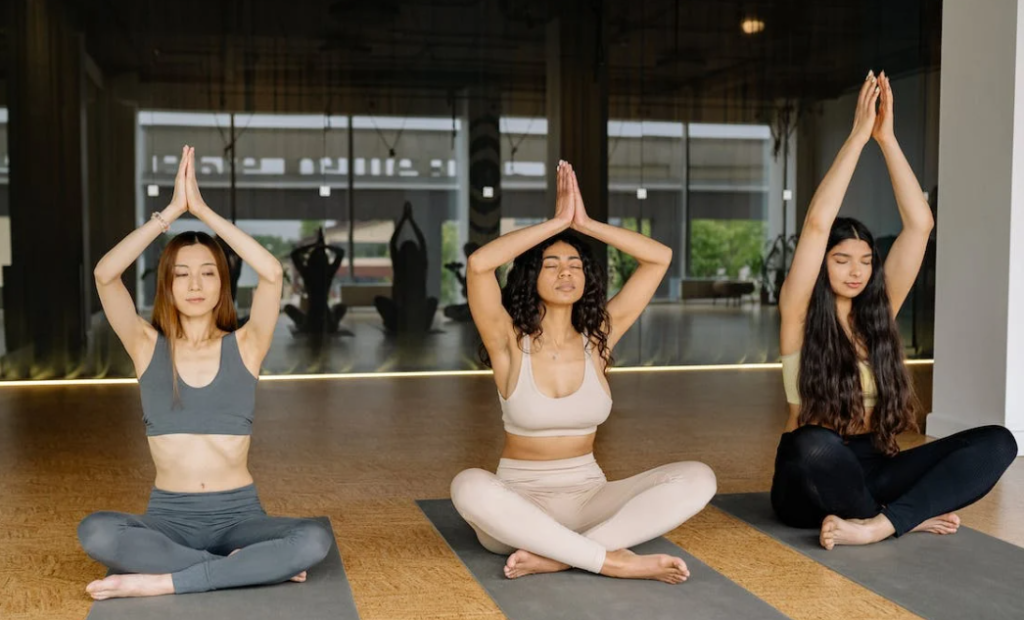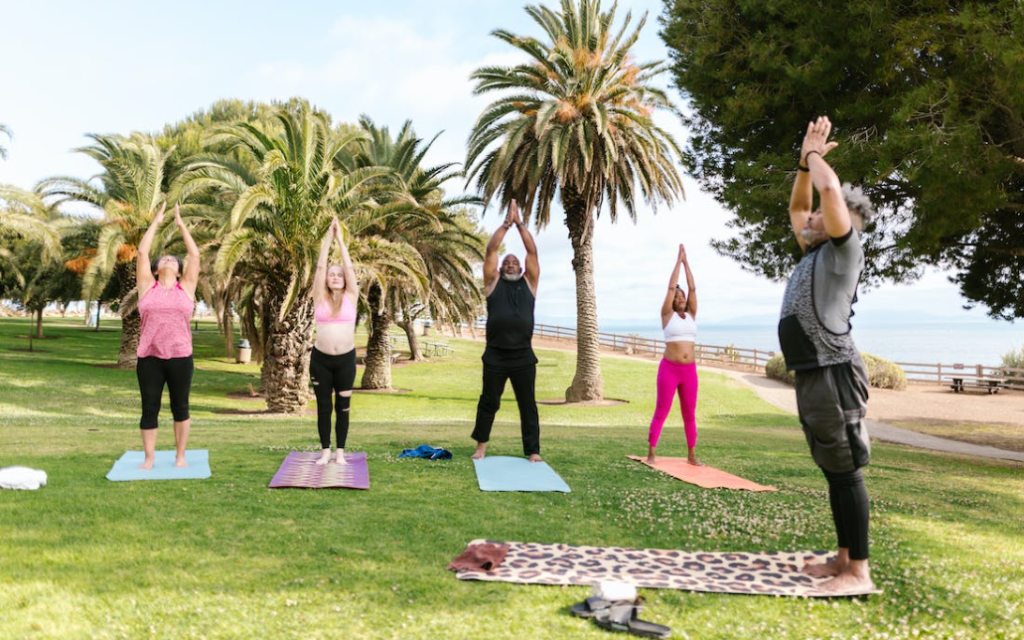Meditation For Stress
Learn how the right meditation can help you deal with stress in many ways.

Selfpause Affirmation App
Download the app to get 1,000’s of affirmation meditations and everything you need to write, record and listen to your own.
Meditation can be a powerful tool for stress management. It has many benefits, both physical and emotional. Different types of meditation offer different benefits. The key is to find one that feels right for you. Once you find one that works for you, it’s important to practice it regularly to reap the full benefits.
Mindfulness meditation

Mindfulness meditation can help people cope with difficult emotions, such as anxiety and depression. It helps them to notice and identify the source of their distress. It is useful for people with anxiety and panic disorder, but it can also help those who are struggling with depression and stress. It is an excellent baseline practice for stress management.
Among the many benefits of this practice, it can help shift the subconscious mind. It helps people relax by switching on the relaxation response. It is also effective for people who are struggling with multiple demands, such as caregiving. It may even help people sleep better. There are several ways to do mindfulness meditation for stress.
Mindfulness meditation can be practiced on a daily basis. The MBSR course includes eight weeks of training. Typically, the course is taught face-to-face. Many healthcare facilities offer the course, which has been proven to reduce stress. Gould recommends practicing at least ten to twenty minutes a day. In addition, the program incorporates complementary daily strategies such as yoga and body awareness to promote stress reduction.
Mindfulness meditation can help people with chronic pain. According to a study published in 2015, mindfulness practice reduced brain activation and pain messages. However, more research is needed to confirm its benefits. But it may have a positive impact on the quality of life for people with chronic pain. It can help people cope with the stress caused by chronic pain.
A religious background can also affect an individual’s response to mindfulness meditation. Some participants with strong religious ideologies said that they were less likely to respond to mindfulness meditation than those who adhere to a secular, nonreligious tradition. They may feel guilty about admitting they experience stress and choosing to practice mindfulness meditation.
According to the study, many people who practice mindfulness meditation say it has improved their stress management and their health. However, the practice may not be right for everyone. Some people may find it difficult, while others feel a sense of empowerment.
Relaxed breathing

If you are looking for meditation for stress, try practicing relaxed breathing. It is an effective tool for reducing stress and increasing your ability to sleep soundly. It is also an effective way to lower blood pressure. You need to practice this meditation to make it effective. To get started, sit comfortably and elongate your spine. Take slow and even breaths and then breathe out fully. Repeat the process 10 times.
To practice this meditation, you should be in a comfortable position, such as a chair, bed, or on a yoga mat. Be sure to wear loose clothing that does not impede your breathing. When sitting, you can bend your knees slightly to flatten your feet.
Once you’ve mastered the basics, you can branch out to more advanced techniques. You can also practice with other people. Meditation groups are a great resource for newbies and give you support while you practice. Many people find that relaxing breathing techniques can be practiced anywhere, and you can learn them from someone with experience.
Deep breathing exercises will help you get rid of stress and make you feel less anxious. You should practice your breathing exercises at least two times a day. It is essential to do these exercises in a comfortable place because trying to force your breathing can make you feel more stressed. When practicing diaphragmatic breathing, make sure you close your eyes. Take slow, deep breaths and focus on the sensation of the lower abdomen and upper chest. Repeat this exercise several times a day, and you should notice a noticeable difference.
Shorter sessions

Shorter meditation sessions are an excellent way to relieve stress and increase your mindfulness. Good practice includes focusing on your breath and body sensations for at least 30 seconds. As your practice develops, you can increase the length of your sessions to one minute or even three minutes. To begin meditating, choose a quiet, comfortable spot where you can sit without distractions.
There are many benefits of meditation, including boosting your concentration and creativity at work. It can also relieve stress, reduce anxiety, and help you develop new ideas. Meditation has been practiced for centuries and has been proven to be beneficial for both the body and mind. Although most people advocate longer meditation sessions, the benefits of shorter sessions are just as significant. Shorter sessions are also useful for people who are new to meditation or for people who do not have enough time to dedicate to the practice.
While longer meditation sessions are beneficial for many people, some people find it difficult to sit for an extended period. It’s important, to begin with, a warm-up session. Even a five-minute meditation session can help you manage stress and improve your mental health. It’s a good practice to experiment with varying lengths and styles and to see what works best for you. In the end, it’s all about how you do it.
A calm mind is the basis of a healthy body and mind. Practicing meditation regularly will make you a healthier person in the long run. Even a short meditation session can help reduce your stress and anxiety. You can also incorporate aromatherapy into your sessions for additional benefits. This adds a pleasant dimension to your meditation.
Community support

Meditation has become a popular way to cope with stress and anxiety. It helps to relax and unwind the mind, which allows you to process information more slowly and effectively. The benefits of meditation are not only psychological but also physical. With a little practice, meditation can be practiced anywhere, even during high-stress situations. It is not difficult to learn, and once you master it, you will naturally be motivated to practice it more often.
A new app aims to make meditation more accessible to more people, including people with limited resources. The app, Waking Up, provides daily guided meditations and podcast-style episodes about meditation theory. It also offers a scholarship program, and grants 100% of its requests. If you aren’t able to afford to pay for a course, you can always use free resources like YouTube to learn the basics of meditation.
Meditation is an evidence-based practice that can help health professionals, patients, carers, and the general public reduce stress. It can be practiced in many different forms and has a proven track record. In fact, the evidence of its benefits has been strong: the long-term practice of mindfulness has been linked to reduced levels of anxiety and depression, as well as improved pain scores. It has also been proven to alter brain structures and functions in people who practice traditional meditation for a long time.
If you’re interested in learning about meditation and other methods to reduce stress, Tampa General Hospital offers an MBSR course. MBSR is an eight-week program that was originally developed by Jon Kabat-Zinn at the University of Massachusetts Medical Center. It is a stress-reduction technique that combines meditation, yoga, and body awareness to create a relaxing and stress-reducing experience. It helps people develop a nonjudgmental awareness and helps them manage chronic illness and improves their overall health.
Our Top FAQ's
Meditation can help reduce stress by calming the mind and body and promoting relaxation. It can also help improve the ability to cope with stress and improve overall well-being. When you meditate, you focus your attention on the present moment, rather than worrying about the past or future. This can help you feel more grounded and at peace. Meditation can also help regulate emotions and improve self-awareness, which can contribute to better stress management.
There are many different meditation techniques that can be helpful for stress management. Here are a few simple techniques that you can try:
-
Deep breathing: Focus on taking slow, deep breaths and try to let go of any distracting thoughts.
-
Body scan: Lie down or sit comfortably and focus your attention on each part of your body, starting at your toes and working your way up to the top of your head. As you focus on each body part, try to relax and release any tension.
-
Guided meditation: Listen to a recorded meditation or follow along with a guided meditation app or video. These can be helpful for beginners or when you’re short on time.
The frequency of meditation practice will depend on your personal goals and preferences. Some people find that meditating for a few minutes every day is sufficient, while others may benefit from longer or more frequent sessions. In general, it’s a good idea to start with a shorter amount of time and gradually increase it as you become more comfortable with the practice. It’s also important to be consistent and make meditation a regular part of your routine.
Meditation is generally considered safe and has been found to have many potential benefits. However, as with any new activity, it’s important to listen to your body and pay attention to any sensations or emotions that arise during meditation. If you experience any negative side effects, such as anxiety or discomfort, you may want to try a different meditation technique or seek guidance from a qualified meditation teacher or mental health professional.
There are many types of meditation that can be helpful for stress management, and the best one for you will depend on your personal preferences and goals. Some popular types of meditation for stress management include mindfulness meditation, which involves bringing your attention to the present moment and accepting thoughts and feelings without judgment; loving-kindness meditation, which involves sending feelings of love and compassion to oneself and others; and progressive muscle relaxation, which involves tensing and relaxing different muscle groups to promote relaxation.
